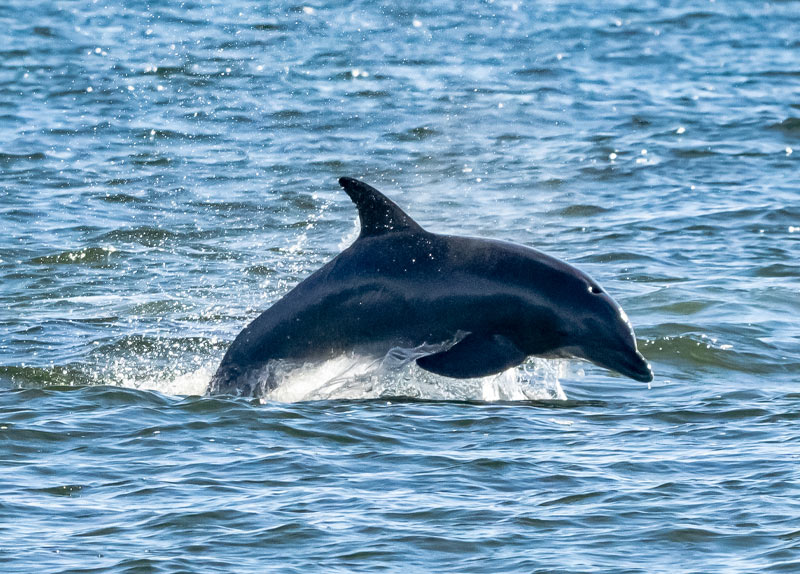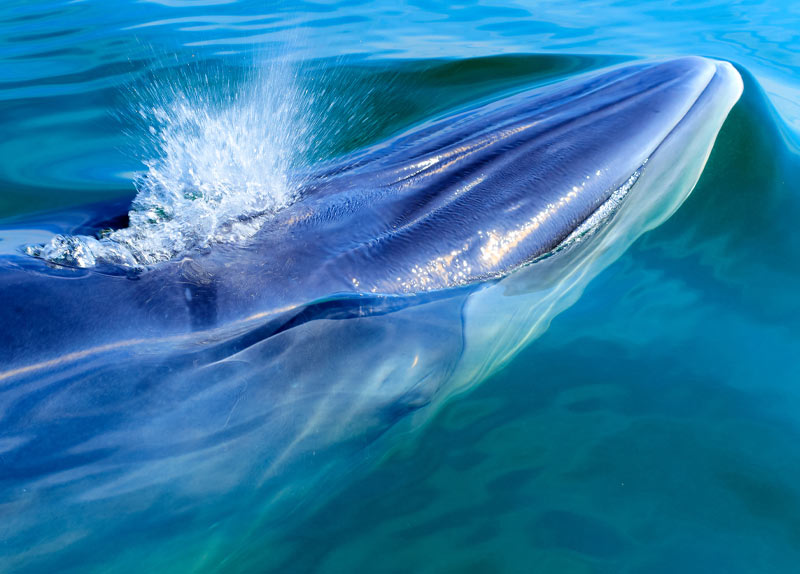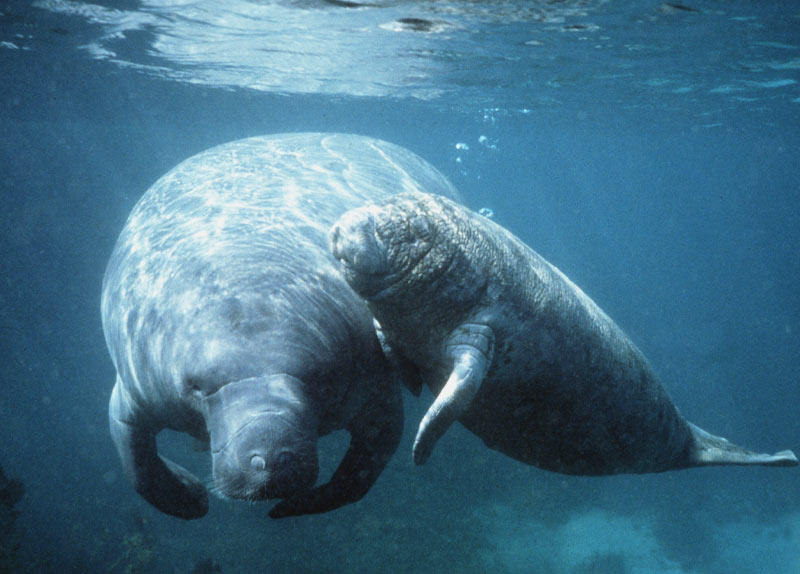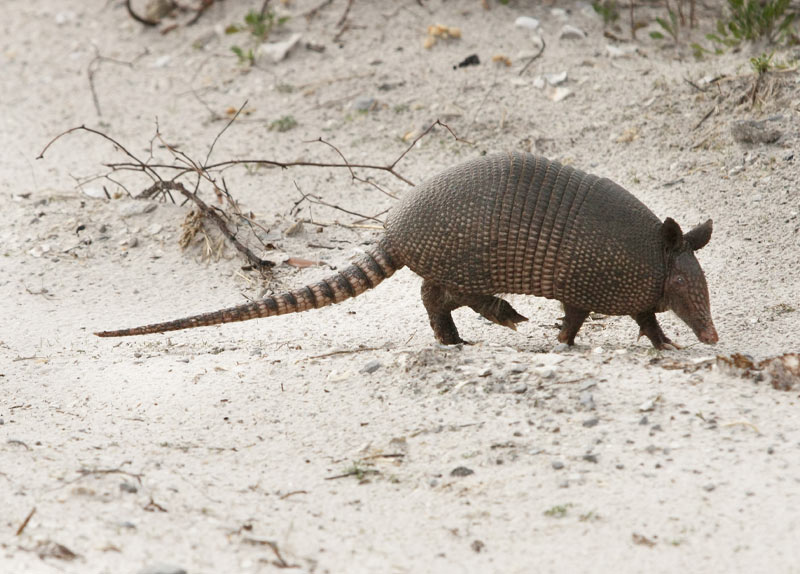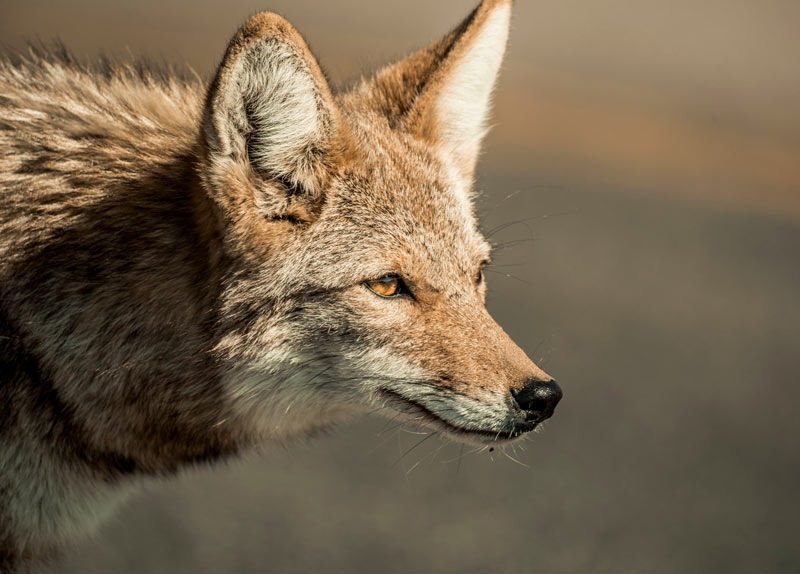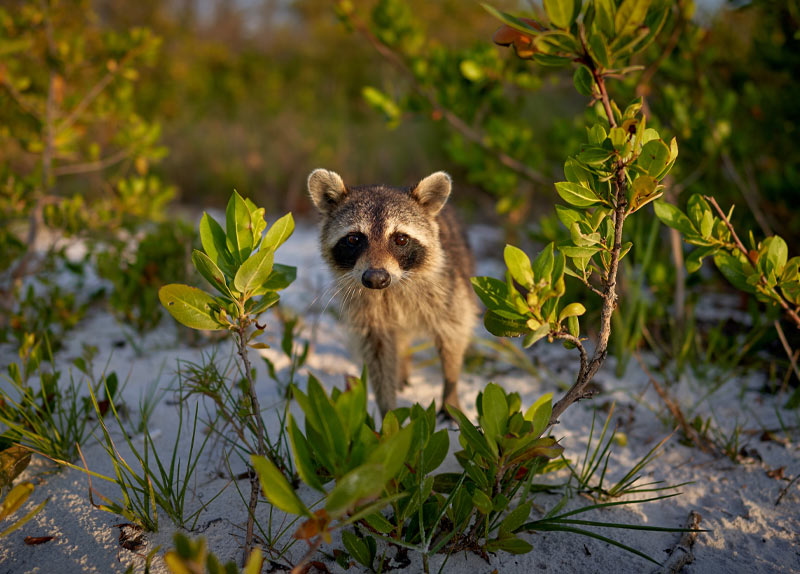Dolphins © Lisa Murphy
MAMMALS
Mammals are historically land-based animals with four legs adapted for running and a backbone that moves up and down. Some are the fastest land animals the planet has ever seen. But as fate would have it, some returned to the sea and occupy niches there. They are so well designed for a life in water that they are mistaken for fish. However, marine mammals differ in several ways:
- Their tail extends horizontally instead of vertically and moves in an up and down motion instead of a side to side.
- They lack scales as well as the characteristic hair of mammals. Most marine mammals use blubber (layers of fat) to keep their bodies warm instead of fur. Because they are warm blooded, many do very well in cold parts of the sea.
- They also have lungs – not gills. Amazingly they exchange almost 90% of the air in their lungs with each breath (compared to about 20% for humans). With this huge load of oxygen, they remain underwater for long periods of time and can dive to deep depths.
- They give live birth – nurturing the developing fetus with a placenta and feeding their young with milk from their mammary glands.
Land mammals are fur covered warm blooded creatures. Beaches are hot, dry, sandy places. Just as in the desert, it makes sense for island mammals to be nocturnal. We know of their existence by their tracks and their scat. Rabbit, raccoon, and armadillo tracks are quite common. Deer, coyote, and beach mice are less so. All that said, some are seen at dawn and dusk and it is not unheard of to see them in the middle of the day – especially during the cooler months. Most dig or find burrows and dens where just a few inches below the surface, is a cool place to spend their day.
Content for this section was provided by Rick O’Connor, the Florida Sea Grant agent for Escambia County. The University of Florida’s Institute of Food and Agricultural Science (UF/IFAS) partners with coastal counties to provide education, research, outreach and extension programs. You may reach him at roc1@ufl.edu and find out more at https://sfyl.ifas.ufl.edu/escambia.






